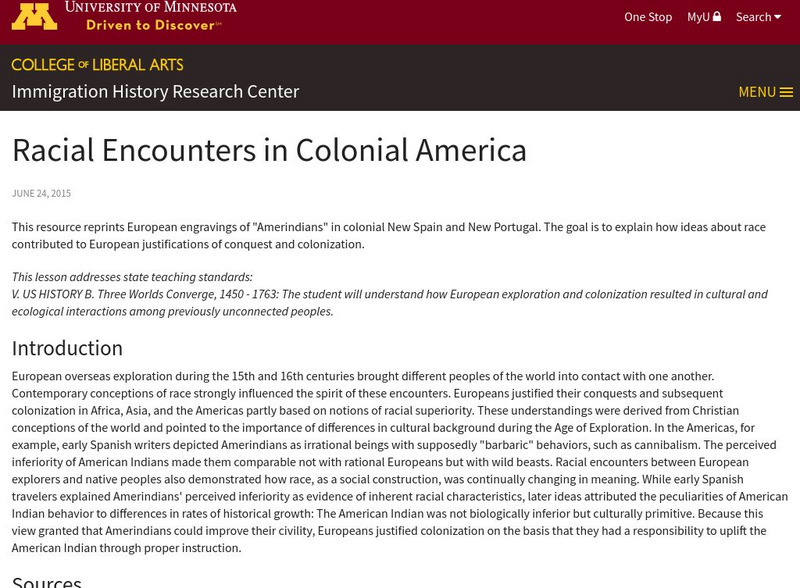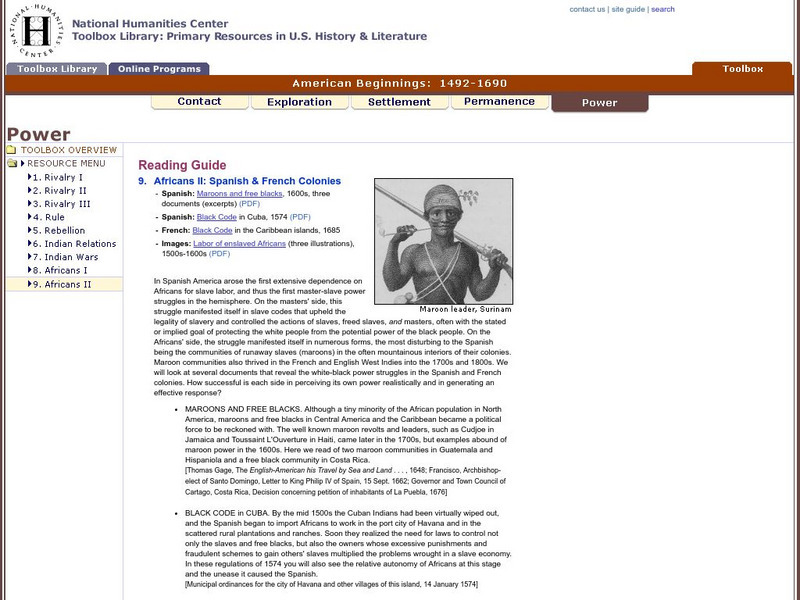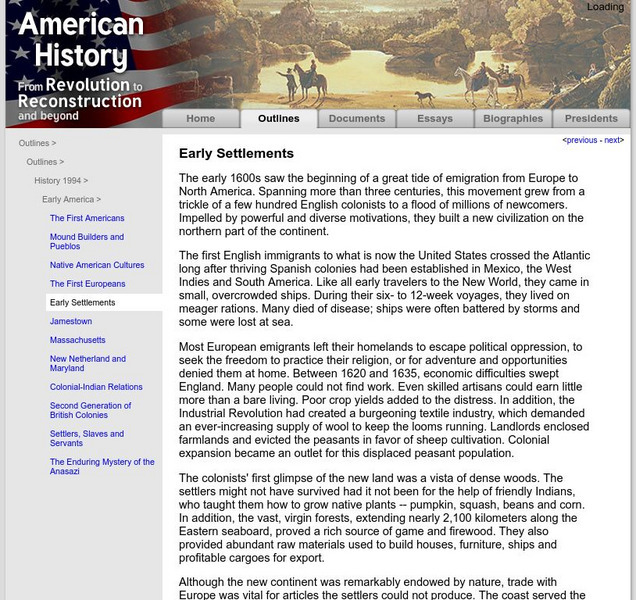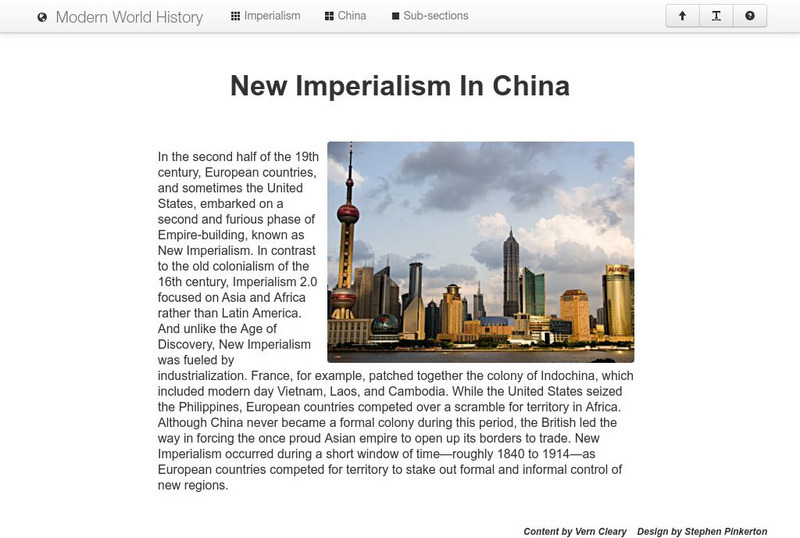University of Minnesota
University of Minnesota: Immigration: Racial Encounters in Colonial America
Copper plate engravings offer one example of the racialization of colonized peoples. At the turn of the 17th century, most Europeans' visual conceptions of the Americas came from the engravings of the workshop of Flemish print-maker...
Khan Academy
Khan Academy: Introduction to the Spanish Viceroyalties in the Americas
When the Spanish Crown (the monarchy) learned of the promise of wealth offered by vast continents that had been previously unknown to Europeans, they sent forces to colonize the land, convert the indigenous populations, and extract...
Stanford University
Sheg: Document Based History: Reading Like a Historian: Mapping the New World
[Free Registration/Login Required] Students read primary source documents to solve a problem surrounding a historical question. This document-based inquiry lesson allows students study two 17th-century maps of Virginia and think...
National Humanities Center
National Humanities Center: Toolbox Library: Enslaved Peoples, American Beginnings: 1492 1690
Two Spanish accounts of enslaved Indians in the Caribbean and enslaved Africans in Mexico and statements of the difficulty of maintaining slavery and the lurking threat of a slave revolt.
National Humanities Center
National Humanities Center: Toolbox Library: Africans Ii, American Beginnings: 1492 1690
Three illustrations and five documents about slave codes, master-slave power dynamics, and free blacks within French and Spanish settlements of the Caribbean.
University of Groningen
American History: Outlines: Early Settlements
The early 1600s saw the beginning of a great tide of emigration from Europe to North America. Spanning more than three centuries, this movement grew from a trickle of a few hundred English colonists to a flood of millions of newcomers....
Other
Armstrong Atlantic State University: English Language
Discover more about the history of the English language when you visit this informative site. Students and teachers will benefit from this educational resource.
Rutgers University
Rutgers University: History of the English Language
This site provides a brief description of the history of the English language.
Other
Modern World History: New Imperialism in China
Fueled by industrialization, European countries began empire building in the late 1800's. How did this affect China who was never formally colonized? Read this short introduction to imperialism in the late 1800's to see the consequences...
PBS
Pbs Learning Media: Primary Source Set: Exploration of the Americas
This collection uses primary sources to explain the early exploration of the Americas.
Curated OER
Etc: Proposed Isthmian Canal Routes, 1848 1884
A map of the proposed isthmian canal routes in Nicaragua and Panama between 1848-1884. The map shows the two chief proposals, the Nicaraguan from Greytown on the Caribbean to Lake Nicaragua and Brito on the Pacific, and the Panama...
Curated OER
Educational Technology Clearinghouse: Clip Art Etc: Christopher Columbus
Christopher Columbus (between August 25 and October 31, 1451 - May 20, 1506) was a Genoese navigator, colonizer and explorer whose voyages across the Atlantic Ocean-funded by Queen Isabella of Spain-led to general European awareness of...
Curated OER
The Bible and Holy Scriptures
One of the primary reasons for colonization of the New World was to escape European religious persecution. This site provides stories of religious nonconformists, militants, zealots, reformers, and the faithful.
Curated OER
The Holy Bible,
One of the primary reasons for colonization of the New World was to escape European religious persecution. This site provides stories of religious nonconformists, militants, zealots, reformers, and the faithful.
Curated OER
The Holy Bible:
One of the primary reasons for colonization of the New World was to escape European religious persecution. This site provides stories of religious nonconformists, militants, zealots, reformers, and the faithful.
Curated OER
The Holy Bible:
One of the primary reasons for colonization of the New World was to escape European religious persecution. This site provides stories of religious nonconformists, militants, zealots, reformers, and the faithful.







